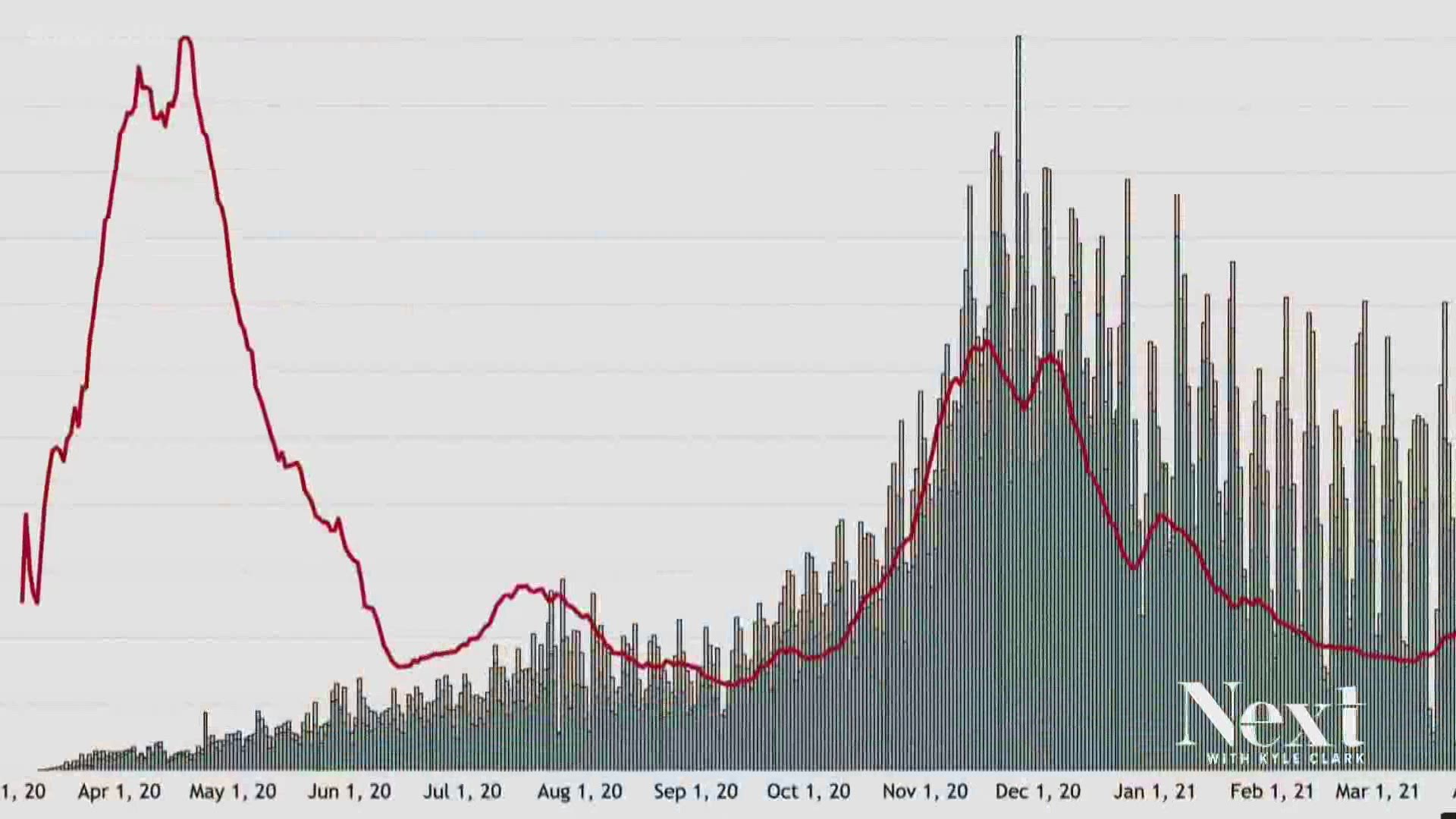DENVER — How will we know when the COVID-19 pandemic is over?
As counties around Colorado lift restrictions or ease mandates, a fourth wave of new cases is causing the number of infections in Colorado to rise. But the metrics we've relied on throughout the pandemic to gauge how things are going are changing.
"I think one of the most important things to look at right now is hospital admissions, really looking at the severity of the cases," said Bob McDonald, Director of the Denver Department of Public Health and Environment (DDPHE). "One hundred and fifty cases now is not the same as 150 cases in the early days of the pandemic.
"The most vulnerable, while there still are some infections there, it’s not like we were seeing in the beginning. It is a younger group now."
The vast majority of people above the age of 70 and in vulnerable categories are now vaccinated. So far, more than 40% of all adults in the state have received at least one dose of the vaccine and a quarter are fully vaccinated.
Counties in the Denver metro area plan to lose all restrictions and enter "level clear" as early as mid-May, but health departments will add more restrictions if hospitalizations begin to rise again.
"That’s probably the single most important metric is looking at those hospitalization rates and who is it that’s going to the hospital," McDonald said. "It’s a little too early in my mind just to lift all of the restrictions, but I do believe we’re at the point where we can ease up a little bit and that’s what we did here in Denver."
There’s no single metric that will determine when the pandemic is over. But there are a lot of factors that will allow doctors and health officials to safely say we’re in a good place and can relax restrictions. Reaching herd immunity with a high percentage of people vaccinated is top of mind right now.
"I would definitely say the pandemic is not over yet," said Dr. Michelle Barron, the senior medical director of infection prevention at UCHealth. "Somewhere between 70%, 80% is probably the point at which we will feel comfortable that enough people are protected that it’s not going to spread."
While health officials can plan for what they believe might happen, the virus can change very quickly.
"This changes so quickly that I’m even hesitant to give predictions," Barron said. "If vaccine rates continue on the current trajectory, I think we really do have a shot for the fall being almost normal."
So, is the pandemic over? No. But now we’re getting a better picture of how we’ll know when it is.
SUGGESTED VIDEO: Full Episodes of Next with Kyle Clark

